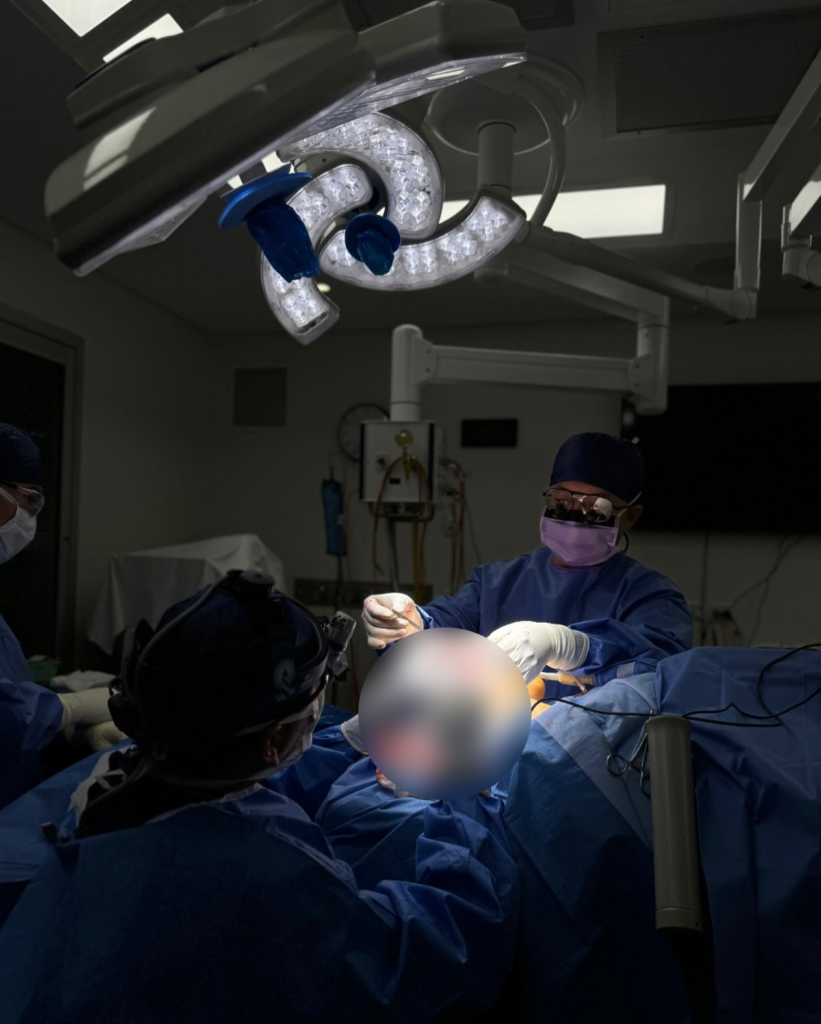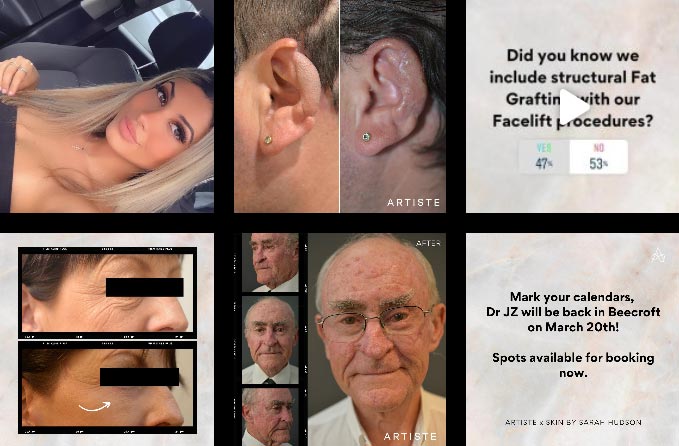Reasons Facelifts Fail And How To Avoid Them
Model featured in photography

Some people opt for facelift surgery to make changes on visible signs of ageing, including fine lines, wrinkles, and loose skin. Outcomes vary per individual and there are occasions where individuals may feel dissatisfied. In this blog, we’ll explore some common factors that may impact facelift results.
Why Don’t All Facelifts Meet Expectations?
1. Unrealistic Expectations
One of the primary reasons facelifts may disappoint is when patients have unrealistic expectations. It’s essential to have a thorough consultation with your surgeon to understand what can realistically be achieved. Unrealistic expectations often lead to dissatisfaction.
2. Surgical Technique
The skill and experience of the surgeon play a significant role in the results of a facelift. Inadequate surgical technique may result in asymmetry, visible scarring, or an unnatural appearance. Choosing a board-certified plastic surgeon with extensive experience in facelift procedures is one of the key factors that can impact facelift results.
3. Inadequate Preoperative Evaluation
A comprehensive preoperative evaluation is essential to assess the patient’s suitability for a facelift. It is also essential to get a GP referral before undergoing any cosmetic procedure. Factors such as skin quality, underlying facial structure, and overall health can influence the outcome.
4. Insufficient Communication
Effective communication between the patient and the surgeon is vital for a successful outcome. Patients should articulate their goals and concerns clearly, while surgeons should provide realistic expectations, discuss the potential risks and complications, and address any uncertainties. Miscommunication can lead to dissatisfaction with the results.
5. Poor Postoperative Care
Proper postoperative care is crucial to support the healing process.. Patients must follow their surgeon’s instructions diligently, including caring for incision sites, avoiding strenuous activities, and attending follow-up appointments. Neglecting postoperative care may increase the risk of complications and compromise the outcome of the facelift.
6. Natural Ageing Process
While a facelift can address some visible signs of ageing, it cannot stop the ageing process altogether. Over time, the effects of gravity, sun exposure, and lifestyle factors will continue to impact the appearance of the face.
How to Prepare for a Facelift Procedure?
Understand the Procedure
Educate yourself about the facelift procedure, including the techniques involved, potential risks, and expected recovery time. Knowing what to expect can help you make informed decisions and better prepare for the surgery. It is necessary to consult with your GP and surgeon for personalised advice about any surgical procedure.
Maintain Realistic Expectations
Understand that while a facelift can make changes in your appearance, it cannot completely halt the ageing process or achieve perfection. Be realistic about the outcomes and understand the limitations and potential risks of the procedure.
Adhere to Preoperative and Postoperative Care Instructions
Following your surgeon’s preoperative and postoperative care instructions diligently is crucial to support the healing process.. This may include avoiding certain medications, quitting smoking, maintaining a healthy lifestyle, attending follow-up appointments, and following specific guidelines from your surgeon.
Choose a Board-Certified and Experienced Surgeon
Research potential surgeons thoroughly by checking their credentials. Look for board-certified plastic surgeons with extensive experience performing facelift procedures.
If you’re interested to know more about a facelift in Sydney, reach out to Artiste Plastic Surgery. Our Specialist Plastic Surgeon, Dr Jack Zoumaras is a board-certified plastic surgeon with extensive experience in facelift. You can openly discuss your goals and concerns to ensure that you have a realistic expectation on what you can achieve with the facelift. Book a consultation today.
Disclaimer: At Artiste Plastic Surgery, our Plastic Surgeons led by Dr Jack Zoumaras have been trained to the highest possible degree. All plastic surgery is invasive and has risks, and it is always advised to get a second opinion. Risks are very real and we cannot guarantee any result. Results are illustrated as a guide only. All risks are managed and any need for revision surgery or complications (1-5%) can be managed by our specialist plastic surgeons. Recovery varies between 1-4 weeks. More information on our website.
Any statements on how you will feel is based on Level V Evidence:
Level V: How you will feel after plastic surgery varies between individuals, depending on psychological and physical factors. Our internal research is based on how patients in our practice feel after surgery.
The blogs are not a substitute for a medical consultation and do not form as part of the doctor to patient relationship.
SHARE THIS ARTICLE
Feb02
Planning Facial Surgery in Bondi Junction? What You Should Know
Disclaimer: At Artiste Plastic Surgery, our Plastic Surgeons led by Dr Jack Zoumaras have been trained to the highest possible degree. All surgery has risks and it is always advised ...
Feb02
Why Experience Matters: What to Look for in a Facial Plastic Surgeon
Disclaimer: At Artiste Plastic Surgery, our Plastic Surgeons led by Dr Jack Zoumaras have been trained to the highest possible degree. All surgery has risks and it is always advised ...
ABOUT ARTISTE
Artiste Plastic Surgery is an Award Winning Specialist Plastic Surgery practice led by internationally trained Dr. Jack Zoumaras, Plastic Surgeon and Peer Reviewed Face Surgeon
Artiste offers the latest Cosmetic Surgical Procedures of the Face, Breast and Body, inspired from leading centres around the world.
STAY IN THE LOOP
Enter your email address below to receive updates on new articles and VIP access to promotions and special offers.
FOLLOW US ON INSTAGRAM
